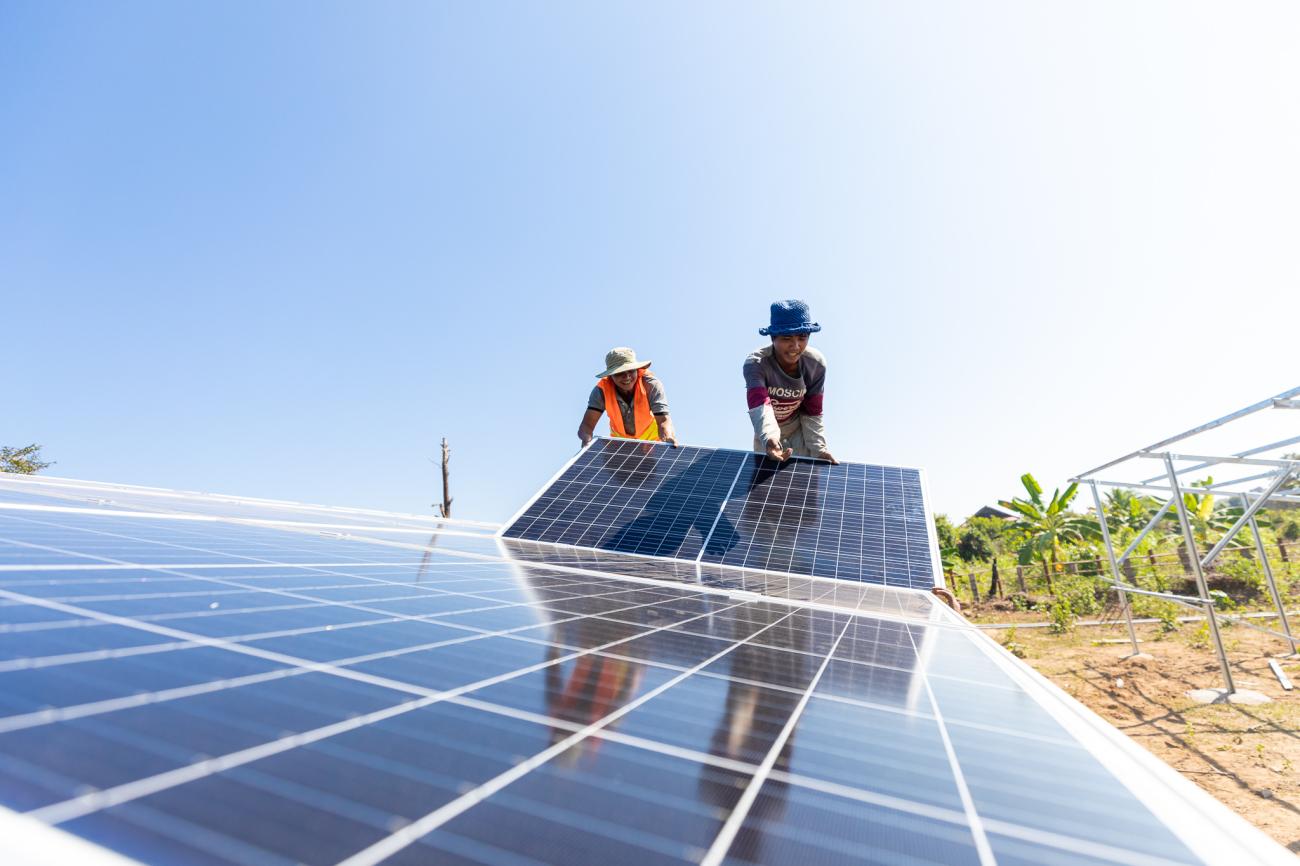A green future will remain out of reach if the world doesn’t help developing countries close a US$2 trillion gap in investment towards an energy transition, the UN Conference on Trade and Development (UNCTAD) warned on Wednesday.
According to a new UNCTAD report, developing countries actually face a staggering US$4 trillion gap in sustainable development investments.
UNCTAD Secretary-General Rebeca Grynspan said that a “significant increase” in material support for renewable energy in developing countries is “crucial” for the world to reach its climate goals by 2030.
Poorer countries left behind in renewables boom
While investment in renewables has nearly tripled since the adoption of the Paris Agreement almost eight years ago, poorer nations have been largely left out.
Grynspan said that more than 30 developing countries have not registered a single international investment in utility-size renewable energy generation since the landmark climate change treaty was adopted in 2015.
According to UNCTAD, the amount of foreign direct investment in clean energy attracted by developing countries in 2022 stood at US$544 billion – well below needs.
Some good news from the report is that energy companies among the top 100 multinationals have been increasingly turning towards renewables and divesting fossil fuel assets at a rate of about US$15 billion per year.
However, the report also shows an overall slower pace of investment in renewable energy in 2022, “as international project finance deals declined”.
In developing countries, the largest gaps in Sustainable Development Goal (SDGs)-related investments were in energy, water and transport infrastructure, UNCTAD said.
Foreign direct investment (FDI) is also on the decline, according to UNCTAD, as global flows fell by 22 percent in 2022, to US$1.3 trillion. In Least Developed Countries, the vast majority of which are in Africa, FDI inflows dropped by as much as 16 percent.
UNCTAD’s report says that the slowdown was driven by “overlapping crises”: the war in Ukraine, high food and energy prices and debt pressures.
With these factors still in play during 2023, the agency said that it expects “downward pressure on global FDI” to continue this year.
The report calls for a series of policies and financing mechanisms to be put in place to help developing countries attract the necessary investments.
UNCTAD stressed the importance of debt relief for developing economies, to provide them with the fiscal space needed for clean energy spending and to help lower country risk ratings, a prerequisite for attracting private investment.
The agency also recommended reducing the cost of capital for clean energy investment through partnerships between international investors, the public sector and multilateral financial institutions – a measure that can reduce the spread on borrowing costs for energy investment projects in developing countries by up to 40 percent.
Grynspan insisted that investment played a “huge part” in achieving the SDGs.
She said they were simply “too big to fail”, calling them “the only game in town” which requires collective action and global solidarity.
Meanwhile, the United Nations kicked off a new campaign on Wednesday to turbocharge the Sustainable Development Goals (SDGs), the roadmap for people and planet adopted by world leaders in 2015.
Ahead of the critical SDG Summit in September, the campaign will amplify an urgent call for ambitious new action, showcase the Goals as the blueprint for sustainable progress globally, and mobilize people everywhere around this shared agenda for our common future.
Halfway towards the 2030 deadline, the promise of the SDGs is in danger. For the first time in decades, progress on development has gone into reverse due to the combined impact of climate disasters, conflict, economic downturn, and lingering COVID-19 effects.
The SDG Summit will bring world leaders together at UN Headquarters in New York on 18-19 September to reaffirm their collective commitments to the Goals and the promise to leave no one behind.
It’s being billed as a defining moment to urgently put the world back on track to achieving the SDGs.
Getting everyone on board
One core campaign component is the call for individual action worldwide on the SDGs through the UN’s ActNow initiative.
“We want to get everyone on board for the SDGs”, said Nanette Braun, Director of Campaigns in the UN Department for Global Communications. “Our hope is that decision-makers and individual citizens alike will feel inspired to join the conversation and contribute to achieving the Goals with new resolve and ambition.”
Starting today, in a major digital activation across platforms and countries worldwide, the UN campaign aims to re-energize the conversation about the Goals.
A curated group of high-profile influencers from entertainment, sports and beyond, the Circle of Supporters, will mobilise their social media communities with a combined reach of more than 80 million globally.
Some of the names lending their support are Grammy award winner Ciara, Academy Award winner Michael Douglas, and former captain of the Argentinian national football team, Javier Zanetti.
From advocating for public transport, to fundraising for schools or speaking up for equality, the platform lists steps that everyone can take to accelerate progress on the SDGs and create better lives on a healthier planet for all.
SOURCE: UN NEWS CENTRE/PACNEWS














